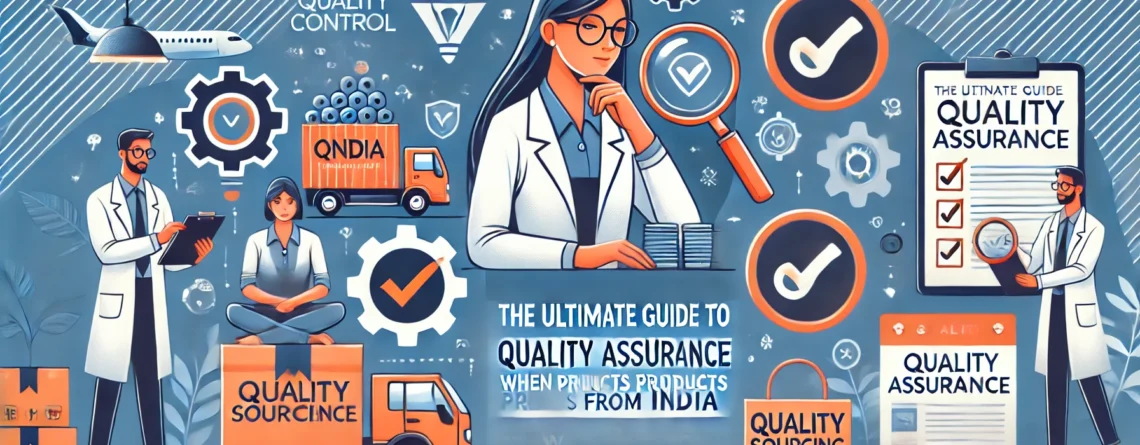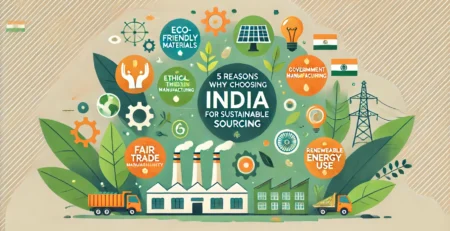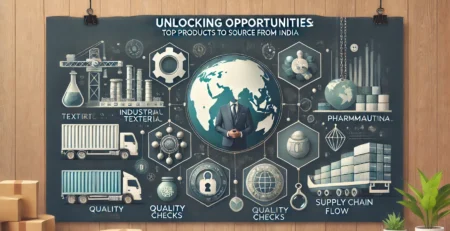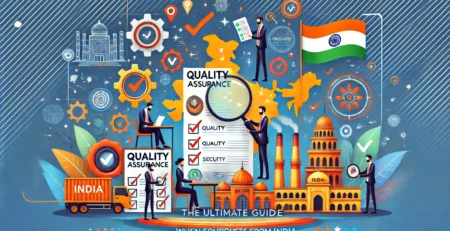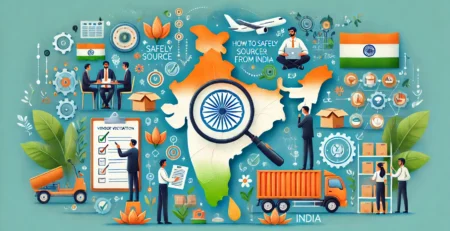Sourcing from India offers access to diverse materials, competitive pricing, and skilled craftsmanship. However, the journey isn’t without its challenges. Here’s a comprehensive look at the major obstacles businesses face and practical ways to overcome them, ensuring a successful sourcing experience.
1. Quality Inconsistencies
Quality issues are common when sourcing from India, especially with varying production standards among suppliers. Without proper oversight, products might not meet your specifications, resulting in rejections, delays, and additional costs.
Solution: To maintain high standards, it’s crucial to implement stringent quality control measures. Engage in regular factory audits and third-party quality inspections. Quality assurance partners can help verify that suppliers adhere to international standards and deliver consistent products. Working closely with suppliers to set clear quality expectations and conducting pre-shipment inspections can further minimize risks.
2. Communication Barriers
Language differences and varied business practices can pose significant challenges. Misunderstandings during negotiations, product specifications, and timelines can lead to costly mistakes.
Solution: Partner with local sourcing agents who are fluent in English and familiar with both Indian and international business practices. Use clear and concise communication channels, such as regular video calls and detailed emails, to minimize misinterpretations. Drafting comprehensive contracts that outline every detail, from material specifications to delivery schedules, can ensure both parties are aligned.
3. Unverified Suppliers and Fraud Risks
India’s vast supplier market includes a mix of highly reliable manufacturers and less reputable ones. Falling prey to fraudulent suppliers can result in substandard products or financial losses.
Solution: Supplier verification is essential. Use sourcing services that specialize in vendor authenticity checks, such as HWW Sourcing, which offers detailed background checks, capacity verification, and on-site inspections. Building relationships with suppliers through consistent communication and visits can also establish trust. Choosing suppliers with certifications like ISO, Fair Trade, or SA8000 provides an extra layer of assurance.
4. Complex Logistics and Shipping Challenges
India’s logistics infrastructure varies significantly, which can lead to delays and increased shipping costs. Navigating customs, regulations, and port delays are common hurdles.
Solution: To manage these complexities, work with experienced logistics partners who understand India’s shipping landscape. Efficient logistics planning, route optimization, and understanding local port operations can mitigate delays. Leveraging digital platforms for real-time tracking and proactive communication with logistics providers ensures smooth and timely deliveries.
5. Navigating Regulatory Compliance
India’s regulatory environment, with its various import/export regulations, can be overwhelming. Navigating these complexities requires in-depth knowledge of local laws, import duties, and compliance standards.
Solution: Collaborate with sourcing partners familiar with Indian regulations who can provide guidance through the legal landscape. Ensuring compliance with local laws not only protects your business from penalties but also streamlines the import/export process. Additionally, keeping updated with any changes in trade policies through reliable advisory services can help you stay ahead of regulatory challenges.
6. Cultural and Time Zone Differences
Working across different time zones and cultural business practices can create coordination challenges. The gap can affect communication, response times, and decision-making processes.
Solution: Set clear communication protocols and regular check-in schedules that accommodate both parties’ time zones. Understanding Indian business culture—such as the importance of building relationships and the tendency toward hierarchical decision-making—can improve interactions and lead to smoother collaborations. Flexibility in meetings and patience in negotiations go a long way.
7. Ensuring Ethical and Sustainable Sourcing
With increasing global scrutiny on ethical practices, ensuring that your sourcing is sustainable and ethical is essential. This includes addressing labor practices, environmental impact, and fair trade concerns.
Solution: Partner with suppliers who adhere to ethical certifications like Fair Trade, SA8000, and BSCI. Regular audits and ethical compliance checks should be part of your sourcing strategy. Additionally, sourcing partners that align with sustainability goals and government-backed initiatives can help enhance your brand’s reputation as a responsible business.
Conclusion: Navigating Sourcing Challenges with Confidence
India remains a top choice for global businesses due to its rich resources, skilled workforce, and cost-effective solutions. By proactively addressing the challenges of sourcing from India, you can unlock the full potential of this vibrant market. At HWW Sourcing, we specialize in guiding international businesses through every stage of the sourcing process, from supplier verification to logistics management. Our tailored services help you navigate complexities, ensuring reliable, ethical, and high-quality sourcing from India.

